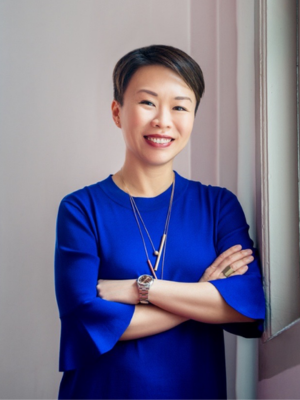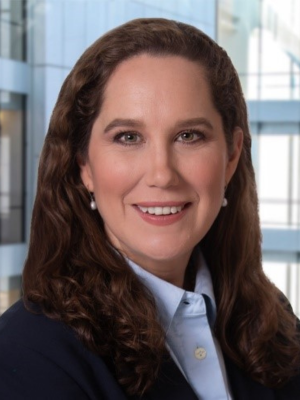 “The thread that ties my previous roles together, and I am most grateful for, is strong mentorship,” says Su Lin Wee. “But it’s a two-way street: you have to show up, put in the hours and deliver results.”
“The thread that ties my previous roles together, and I am most grateful for, is strong mentorship,” says Su Lin Wee. “But it’s a two-way street: you have to show up, put in the hours and deliver results.”
Wee, who is based in Singapore, delves into the foundational experiences that influenced her approach to leadership and her dedication to uplifting others – especially women.
From architecture to asset management
From the outset of her career, Wee has been inspired by strong women leaders. After earning her master’s in architecture, she joined Singapore’s Urban Redevelopment Authority (URA) and played a key role in shaping the modern urban landscape of Singapore’s historically-rich Bras Basah and Bugis districts in the heart of the city.
“Working directly with successful women leaders was a great start to my career,” Wee says. “I served under many high performing women who were in CEO, Chief Planner and department head roles during my time at the URA. Starting out in an environment with strong female leadership made it feel natural, and I was fortunate to have great role models who gave me many opportunities to learn and grow.”
When Wee transitioned from urban planning to real estate development and asset management, she again found the support of mentors to be instrumental to her growth.
As a development lead for Asian developer, CapitaLand, Wee signed up for the challenge of delivering a $1.2 billion USD retail and office development in Singapore from the ground up, while facing a tight budget, short timeline and a competing developer nearby who already had a head start.
“Despite my prior experience with previous projects, stepping into the role of a development lead for such a large project presented new challenges. Managing a team that included individuals senior to me, in both age and experience, required respectful navigation and was a two-way street.”
Wee adds, “I had to work hard to earn the trust of the team to show them that I was the right person to lead the project. I benefited from the great support from my manager who gave me invaluable lessons in building trust and leadership skills, through his advocacy and close mentorship.”
The project was completed on time and within budget, and Wee speaks fondly of the great team rapport and lasting relationships that she built throughout this experience.
Wee’s experience at CapitaLand helped prepare her for her current role as Head of Asset Management for Southeast Asia, Hong Kong & China at PGIM Real Estate, which manages $206 billion USD of assets globally, including $9.4 billion USD in Asia Pacific. She is thrilled to engage in fulfilling work across various geographies and diverse teams to make a positive impact.
“The funds we manage generate more than financial value–we deploy solutions to ensure that buildings we construct or enhance are more sustainable, energy-efficient and help conserve water.”
Committed to empowering her team
Given the pivotal role mentorship has played in shaping Wee as a leader, it’s unsurprising that she is a passionate advocate for others, taking a strong interest in her team members’ growth, even if it means that they might move on to another team or company.
“I encourage openness about career aspirations. If there is another role beyond asset management that they are interested in, then I provide honest feedback on their fit for the role. If they choose to leave because it’s what’s good for them and makes them happy, then I am happy, since I want them to be able to grow.”
Wee also makes it a point of ensuring that everyone’s voice is heard.
“I value the diversity in our teams and always encourage some of our quieter, more reserved team members to speak up. Going around the table and giving them space to express their points of view lets everyone benefit from different perspectives.”
Wee firmly believes that a positive, encouraging environment is key to getting women to speak up more and make their opinions heard at work. “There’s no need to wait until you’re in a leadership position to be an advocate. Simple day-to-day acts like showing an active interest in a colleague’s ideas on a call, or helping them develop these ideas, can go a long way.”
Recently completing a PGIM leadership training, Wee reflects on how the experience reminded her that asserting one’s viewpoint can be challenging, even for leaders.
“As women, we sometimes second-guess ourselves before speaking or voicing our opinions. It turned out that many of the attendees at the training sessions, regardless of gender, nationality, background or even how confident they looked to me, shared that they sometimes felt hesitant to speak in a group and would rather stay silent than risk saying something contradictory.”
Wee continues, “Once we get over that initial hesitation, we realize, ‘Hey, the world hasn’t come crashing down, regardless of what we’ve said. Now, it’s just muscle memory to focus on contributing to discussions and bringing everyone forward.’”
Quieting the inner critic
Wee admits to being the hardest on herself, often setting increasingly high standards for her accomplishments.
“I am my own worst critic, and I believe many women face this too. We tend to be hard on ourselves, but it’s important to also recognize when we’ve earned our place through hard work, skills and experience.”
Creating networking opportunities for current and future women leaders
Uplifting others beyond the workplace, Wee is the co-chair of the Urban Land Institute’s (ULI) Women’s Leadership Initiative (WLI), a non-profit that focuses on raising the visibility and number of women leaders in the real estate industry. In her role, Wee creates programs that provide opportunities for younger women to network with industry leaders in an informal environment.
“The WLI programs we plan aim to break down barriers and allow women to listen and connect with senior leaders.” She asserts, “Sometimes, all you need is a friendly face and an introduction.”
From her experience, Wee understands the impact that these relationships can have and is looking forward to continuing her work with the WLI in the future.
“It’s invigorating to interact with other women and help one another network and grow.”
Outside of work, Wee enjoys running to stay fit and find time to think. Despite her busy schedule as a mother and professional, she regularly makes time for a run – even while on vacation with her family. No matter where she travels, she always packs her running shoes, ready to explore her new environment.
By Jessica Robaire

